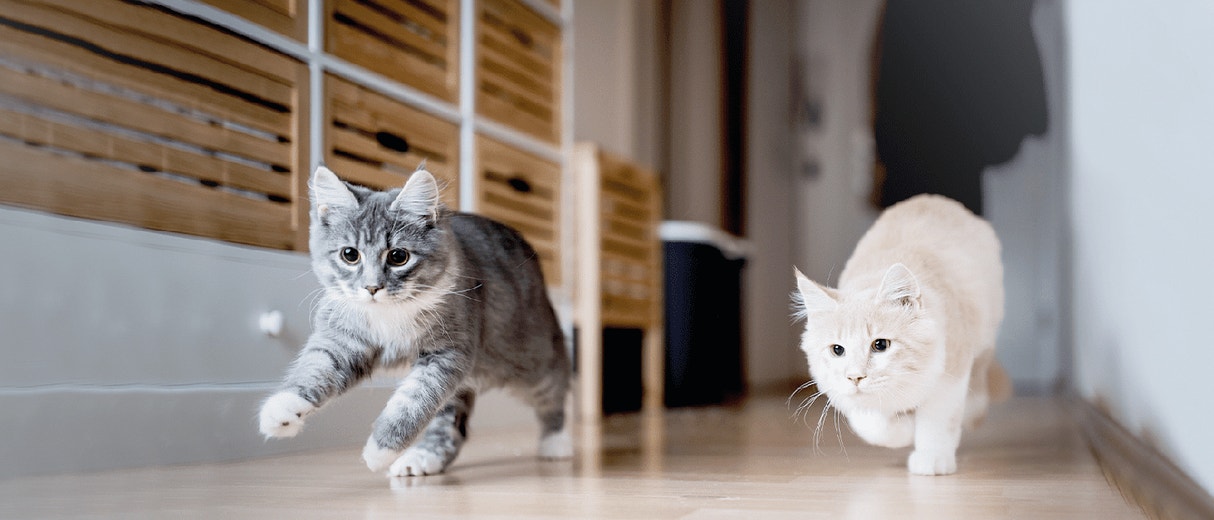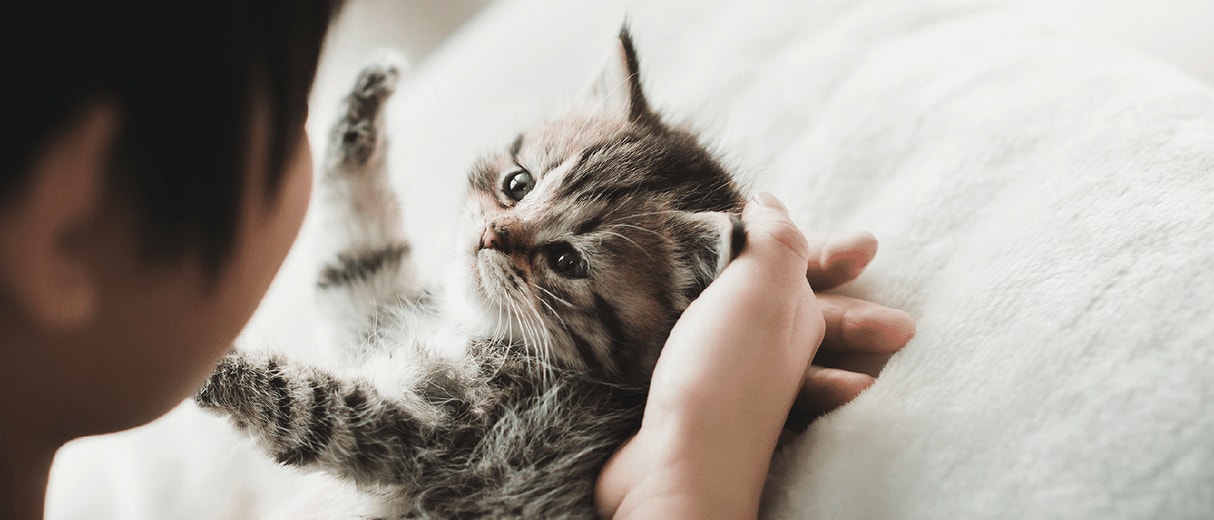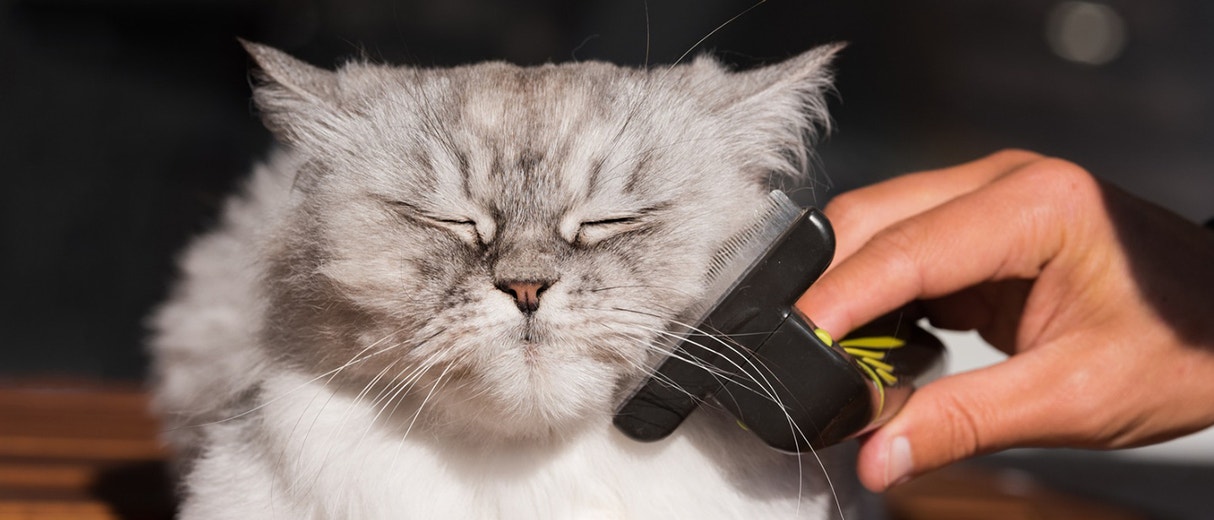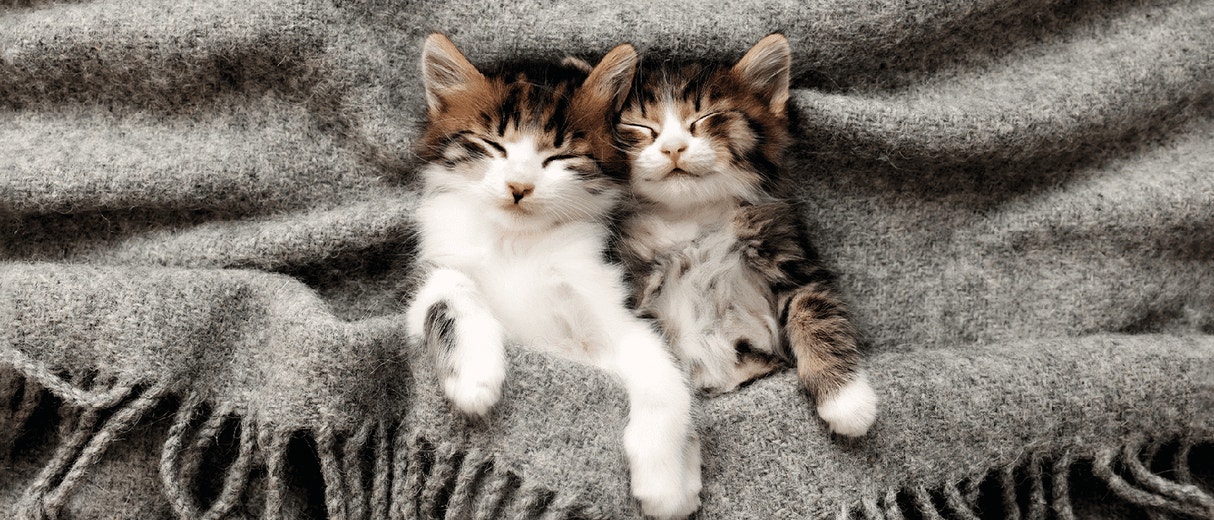
Indoor Cats Vs Outdoor Cats: Know the Difference
Will your kitten be an indoor or an outdoor cat? By understanding her natural instincts, you can make sure she has a happy life wherever she roams.
One of the most pressing questions feline parents seek an answer to is - whether to let their cats roam free outdoors or is it better to confine the furry munchkins indoors. While kitties love strutting outdoors since they are genetically predisposed to roam and hunt in the wild, certain dangers can be fatal for your precious fur baby. But keeping your cat confined within the four walls at all times might not be healthy for your fur kiddo. They can not only become morose but also fat or obese due to the lack of physical exercise.
At the end of the day, what all cat parents want is a healthy and happy fur baby. So, if you are worried about whether to let your furry feline out or lock them inside, this article will guide you towards making an informed decision.
The lifespan of Indoor Cat vs Outdoor Cat
While the lifespan of cats is dependent on various factors like their breed, the average lifespan of an indoor cat has been observed to be considerably higher than outdoor cats. Indoor cats often enjoy a healthy cat lifespan between 12 to 15 years, whereas outdoor cats rarely outlive 8 to 10 years. In the wild, there are significant risks that potentially threaten the life expectancy of cats. Outdoor cats are often preyed upon by larger animals like dogs and foxes, or face the threats of starvation, harsh climates, diseases, and traffic. Indoor cats are usually protected from such risks.
Cat Health
Indoor and outdoor cats, both face the risks of contracting diseases to some degree, but the diseases can more often be fatal in outdoor cats. While outdoor cats can contract fatal diseases more easily, indoor cats can tend to become obese due to lack of exercise.
Diseases
Some of the diseases commonly observed in cats include:
Feline AIDS
Feline AIDS is a consequential disease most commonly experienced by outdoor cats. However, in addition to being fatal, feline AIDS is worrisome for cat parents due to its contagious nature.
FIP (Feline Infectious Peritonitis)
FIP is a viral disease more commonly observed in feral and outdoor cats and manifests in symptoms like blood poisoning, fever, shock haemorrhage, loss of appetite, and vomiting. Once detected, FIP worsens rapidly and can kill the cat within months.
URI (Upper Respiratory Infection)
Upper respiratory infection is quite common in outdoor cats. Although URI is not fatal, it can put significant strain on your kitty’s immune system, making it susceptible to other diseases.
Parasites
Some of the common parasites to affect indoor vs outdoor cats are:
Roundworm
Roundworms are intestinal parasites that cause gastric infections, characterized by diarrhoea, abdominal discomfort, vomiting, lack of appetite, and weight loss.
Tapeworm
Tapeworm is a disease-causing parasite found in the lower intestine of cats and can be easily transmitted to healthy cats from sharing an indoor cat litter tray. Outdoor cat litter can also attract tapeworms, increasing the chances of transmission.
Hookworm
Outdoor, as well as indoor cats, face the risks of coming in contact with hookworms from cat fleas and infected faecal matter.
Letting Your Cat Outside Safety Concerns
Mentioned below are some of the safety concerns that you should consider before letting your cat out:
Risks of disease and parasitic infection
Unlike outdoor cats, indoor cats are comparatively protected from diseases and parasites. Outdoor cats run the risk of falling ill by ingesting toxic substances or drinking from contaminated sources. Outdoor cats also come in touch with diseases like feline AIDS, feline leukopenia, and diseases borne by insects like ticks and leeches.
Accidents
Roadside accidents are one of the most common and serious outdoor threats faced by cats. Therefore, uncontrolled outdoor access is a grave safety concern among pet parents who live next to highways or roads with busy traffic. Other accidents, such as falling from high ground or getting injured while climbing are also more common among outdoor cats than housecats. When it comes to indoor cats vs outdoor cats, those staying indoors enjoy a comparatively safe and secure life.
Predators
Outdoor cats often face significant risks from predators such as hawks, dogs, raccoons, and coyotes. So, unless you are sure your neighbourhood is safe from larger predatory animals, letting your cat go on outdoor adventures is best avoided unless you are accompanying it.
Getting separated
It is not always the best idea to let your fur baby go on a walk on its own, especially in a new neighbourhood as an unfamiliar environment can cause it to lose its way. If your kitty is prone to going on outdoor adventures, get them microchipped and tracked with GPS collars so that you know where your precious munchkin is at all times.
How to keep your cat stimulated?
Cats are free spirits, and being held inside can cause indoor cats to feel stressed and even depressed. Being confined inside the outdoor cat house can also cause them to lose their temper, making them feel annoyed and restless. So, it is also vital to make sure your indoor cat receives sufficient physical and mental stimulation to stay happy and healthy. You can pick up some of the beneficial tips to keep your indoor cat stimulated from the list mentioned below.
- Making playtimes an important part of their everyday routine. Games like hide and seek and fetch can allow cats to rely on their feline hunting instincts and keep them entertained. You can hide treats for them to hunt and find too, as part of a game.
- Outdoor cats prefer to keep their claws sharp by scratching them on the barks of trees. Let your outdoor cat house cats keep their claws sharpened by getting them scratch pads or posts.
- Kitties love to climb to vantage points and outdoor felines often climb trees or fences. To ensure that your indoor cat doesn’t miss climbing, you can get it a climbing post or a cat tree.
FAQ on Indoor Cat Vs Outdoor Cat
-
Can you toilet-train a cat?
Yes, it is possible to toilet-train your cat. With patience and by following the right methods, you can train your kitten to use the toilet and keep it clean too! But it might take a little longer than litter training.
Do you have to train a cat to use the litter box?
Yes, a cat needs to be trained to use the litter box. Generally, a kitten learns from its mother to pee and poop in the right place. But you too can train your cat by getting them used to the litter box.
How can I train my cat to use the litter box?
- Keep the litter box in a proper place
- Put enough litter in the litter
- Put the kitty in the box so that it gets accustomed to the litter box
- Try making changes to the litter box if the kitty doesn't use it
How long does it take to train a cat to litter?
Kittens have to be placed in the box many times for several days to get an idea of the litter box. It might take longer to train adult cats. On average, it takes around 4 weeks to train a cat to litter.
What is the fastest way to litter train a cat?
The fastest way to litter-train a cat is to start training it when it is still a baby. Kittens are quick learners and less fussy about their preferences. Use positive reinforcements such as treats and cuddles to train them easily.
Is it cruel to keep cats indoors?
Indoor cats often lack the freedom enjoyed by outdoor cats, which may cause them to feel irritated or upset. However, being indoors significantly eliminates the risks to their health. Just make sure to keep them stimulated, well fed and hydrated.
Are outdoor cats happier than indoor cats?
Outdoor cats have easy access to go on wonderful adventures and exercise their freedom. Hence their curiosity and sense of self are more prominent and satisfied. In comparison, indoor cats often feel restricted, causing them to be irritated or upset, creating a stark difference when it comes to indoor vs outdoor cats.
Is it ok to have an indoor-outdoor cat?
Confused with indoor cats vs outdoor cats? It is natural for your indoor cat to want to go on outdoor adventures. It is okay to have an indoor cat who enjoys going outside but make sure that your kitty is regularly checked out for diseases and parasites.
Is it better to have an indoor or outdoor cat?
Indoor vs outdoor cats have their fair share of strengths and weaknesses. However, when it comes to the general health and life expectancy of cats, indoor fur babies tend to be healthier and live much longer than their outdoor counterparts.
Should I kitten-proof my balcony or window?
You can take steps like keeping cotton drapes and blind cords out of your fur baby’s reach, keeping windows and balcony doors closed unless the kitten is being supervised, and ensuring that plants toxic to cats aren’t within their reach.
How do I kitten-proof my home?
Some crucial first steps of kitten-proofing homes are:
- Keeping doors and windows locked
- Having protective covering on wires and vulnerable furniture like sofas
- Keeping small objects off the floor
- Never leaving food uncovered
- Using childproof latches on cabinets
Is kitten-proofing my house necessary?
If you are thinking of getting a kitten, definitely! You would want to create a safe cat house for your new furry friend and also protect your household goods and furniture from curious kitties. Kitten-proofing your home ensures both.
Do cats fake sleep?
Yes, they do. Cats fake sleep for a number of reasons such as when they are stressed or looking to get some pets from you.
Do cats care if you sleep with them?
Most cats love co-sleeping with their humans and they will happily snooze curled up beside you or on your lap.
Is a Cat Always in Deep Sleep?
Cats deep sleep for about 1/4th of their sleeping hours with the rest 3/4th dedicated to light sleeping or just snoozing. During light sleep, your furry friend is still resting, but in an alert state.
How many hours does a cat sleep in a week?
In general, cats sleep for around 13-16 hours per day, but this duration can extent to over 18 hours in some cats. So, how long do cats sleep in a week? Well, cats sleep a whopping 91 to more than 126 hours per week!
Do Cats Dream and Snore?
Yes, cats dream and snore. You will find your sleeping kitten twitching, moving their paws, making noises, and stretching. They can also snore when deeply asleep. Snoring is normal as long it’s not accompanied by other problems like sneezing, nose or eye discharge, coughing, or appetite changes.
How do I calm my cat to cut its nails?
While most cats are tolerant of having their nails cut by someone they love, it is always a good idea to reward them with cat treats or shower them with affection, helping them calm down while you trim their nails.
Do cats get mad when you cut their nails?
Trimming nails can make cats uncomfortable and fussy. So, avoid cutting cat nails when they are playing or stressed. It is important to give your kitty a nail trim once it is relaxed and comfy, like right after their mealtimes.
What happens if you don’t trim your cat’s nails?
Once it grows too long, your fur baby’s nails can curve and grow into their soft paw pads, causing immense discomfort and pain. Failing to make sure to cut the cat’s nails also significantly raises the risks of bacterial infection.
Is it necessary to trim a cat’s claws?
No, it is not always necessary to cut cat nails unless they have grown too long. Cats rely on their claws for multiple purposes like climbing and marking their territories, making it a significant limitation of cut cat’s nails.
Do cats realise their claws hurt?
As kittens, felines are used to rough play which often includes playfully scratching and biting their loved ones. However, they do not always realise that their claws can hurt their favourite humans, however innocent and loving their intentions may be.
Do cats remember their owners when alone for a few days?
Cats are territorial and independent, but they are also incredibly affectionate and loving and miss their loved ones in their absence. So, you do not have to worry about your cat forgetting you when left alone for a few days.
Can I leave my cat alone for a few days?
While it is not recommended, you can leave your fur kiddo for 2-3 days alone at home without any supervision. Just make sure there are sufficient food, fresh water, and litter tray with enough litter available at their disposal.
What can I do with my cat when I go away?
To ensure your fur buddy stays healthy while you are away, you can opt for a cattery or cat-sitting service. Also, remember to take the necessary measures to make sure they are well-fed and hydrated while you are away.
See More Articles Like This




